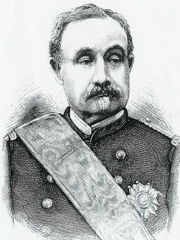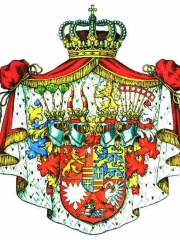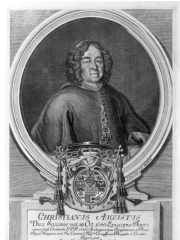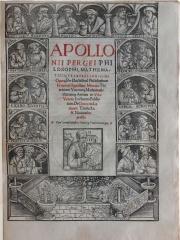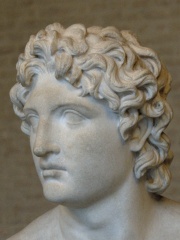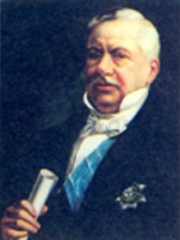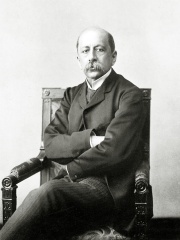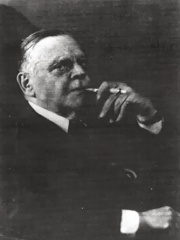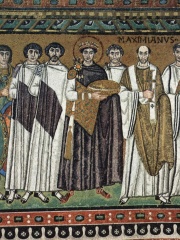Politician
Areus II
262 BC - 254 BC
EN.WIKIPEDIA PAGE VIEWS (PV)

 Areus II
Areus II
Areus II (Ancient Greek: Ἀρεύς Β΄) was Agiad King of Sparta from 262 to 254 BC. He never reigned as he was still a child when he died. He was succeeded by his cousin Leonidas II, who had served as regent. Read more on Wikipedia
His biography is available in 20 different languages on Wikipedia. Areus II is the 11,937th most popular politician (down from 11,179th in 2024), the 597th most popular biography from Greece (down from 567th in 2019) and the 252nd most popular Greek Politician.
Memorability Metrics
Page views of Areus II by language
Among Politicians
Among politicians, Areus II ranks 11,937 out of 19,576. Before him are Ali Akbar Salehi, Ernest Courtot de Cissey, Wan Li, Litokwa Tomeing, Alexander, Duke of Schleswig-Holstein-Sonderburg, and Mordechai Gur. After him are Christian August of Saxe-Zeitz, Lucius Calpurnius Bestia, Mansur Yavaş, Quintus Caecilius Metellus Celer, Zhang Qun, and Gianfranco Fini.
Most Popular Politicians in Wikipedia
Go to all RankingsAli Akbar Salehi
1949 - Present
HPI: 59.40
Rank: 11,937
Ernest Courtot de Cissey
1810 - 1882
HPI: 59.40
Rank: 11,938
Wan Li
1916 - 2015
HPI: 59.40
Rank: 11,939
Litokwa Tomeing
1939 - 2020
HPI: 59.40
Rank: 11,940
Alexander, Duke of Schleswig-Holstein-Sonderburg
1573 - 1627
HPI: 59.40
Rank: 11,941
Mordechai Gur
1930 - 1995
HPI: 59.39
Rank: 11,942
Areus II
262 BC - 254 BC
HPI: 59.39
Rank: 11,943
Christian August of Saxe-Zeitz
1666 - 1725
HPI: 59.39
Rank: 11,944
Lucius Calpurnius Bestia
154 BC - Present
HPI: 59.39
Rank: 11,945
Mansur Yavaş
1955 - Present
HPI: 59.39
Rank: 11,946
Quintus Caecilius Metellus Celer
103 BC - 59 BC
HPI: 59.39
Rank: 11,947
Zhang Qun
1889 - 1990
HPI: 59.39
Rank: 11,948
Gianfranco Fini
1952 - Present
HPI: 59.39
Rank: 11,949
Contemporaries
Among people born in 262 BC, Areus II ranks 2. Before him is Apollonius of Perga. Among people deceased in 254 BC, Areus II ranks 1.
Others Born in 262 BC
Go to all RankingsApollonius of Perga
MATHEMATICIAN
262 BC - 190 BC
HPI: 78.39
Rank: 1
Areus II
POLITICIAN
262 BC - 254 BC
HPI: 59.39
Rank: 2
Others Deceased in 254 BC
Go to all RankingsIn Greece
Among people born in Greece, Areus II ranks 597 out of NaN. Before him are Philinna (-400), Euphranor (-301), Theagenes of Megara (-700), Pamphilus (-390), Mentor of Rhodes (-380), and Petros Persakis (1879). After him are Phaenias of Eresus (-400), Andronicus of Cyrrhus (-200), Musaeus of Athens (-500), Georgios Zoitakis (1910), Spyridon Trikoupis (1788), and Myrtis of Anthedon (-500).
Others born in Greece
Go to all RankingsPhilinna
POLITICIAN
400 BC - 400 BC
HPI: 59.55
Rank: 591
Euphranor
PAINTER
301 BC - 400 BC
HPI: 59.54
Rank: 592
Theagenes of Megara
POLITICIAN
700 BC - 600 BC
HPI: 59.51
Rank: 593
Pamphilus
PAINTER
390 BC - 400 BC
HPI: 59.50
Rank: 594
Mentor of Rhodes
SOCIAL ACTIVIST
380 BC - 340 BC
HPI: 59.44
Rank: 595
Petros Persakis
GYMNAST
1879 - 1952
HPI: 59.42
Rank: 596
Areus II
POLITICIAN
262 BC - 254 BC
HPI: 59.39
Rank: 597
Phaenias of Eresus
PHILOSOPHER
400 BC - 360 BC
HPI: 59.39
Rank: 598
Andronicus of Cyrrhus
ASTRONOMER
200 BC - 100 BC
HPI: 59.38
Rank: 599
Musaeus of Athens
PHILOSOPHER
500 BC - Present
HPI: 59.35
Rank: 600
Georgios Zoitakis
MILITARY PERSONNEL
1910 - 1996
HPI: 59.32
Rank: 601
Spyridon Trikoupis
POLITICIAN
1788 - 1873
HPI: 59.32
Rank: 602
Myrtis of Anthedon
WRITER
500 BC - Present
HPI: 59.31
Rank: 603
Among Politicians In Greece
Among politicians born in Greece, Areus II ranks 252. Before him are Agesipolis II (-400), Charilaos Trikoupis (1832), Machanidas (-254), Eudamidas III (-300), Philinna (-400), and Theagenes of Megara (-700). After him are Spyridon Trikoupis (1788), Doryssus (null), Ioannis Rallis (1878), Ioannis Alevras (1912), Tzannis Tzannetakis (1928), and Peter the Patrician (500).
Agesipolis II
400 BC - 370 BC
HPI: 59.75
Rank: 246
Charilaos Trikoupis
1832 - 1896
HPI: 59.75
Rank: 247
Machanidas
254 BC - 207 BC
HPI: 59.71
Rank: 248
Eudamidas III
300 BC - 300 BC
HPI: 59.63
Rank: 249
Philinna
400 BC - 400 BC
HPI: 59.55
Rank: 250
Theagenes of Megara
700 BC - 600 BC
HPI: 59.51
Rank: 251
Areus II
262 BC - 254 BC
HPI: 59.39
Rank: 252
Spyridon Trikoupis
1788 - 1873
HPI: 59.32
Rank: 253
Doryssus
HPI: 59.20
Rank: 254
Ioannis Rallis
1878 - 1946
HPI: 59.16
Rank: 255
Ioannis Alevras
1912 - 1995
HPI: 59.15
Rank: 256
Tzannis Tzannetakis
1928 - 2010
HPI: 59.11
Rank: 257
Peter the Patrician
500 - 565
HPI: 59.10
Rank: 258

